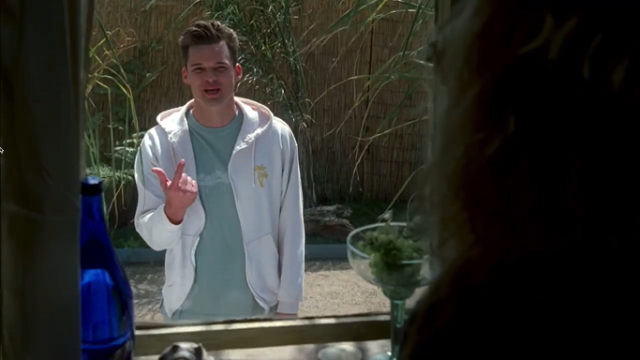Like a lot of famously complicated works, the point of John From Cincinnati is extremely simple: we are loved by God and occasionally each other, and all of life is either expression of that or frippery. It feels to me like David Milch’s take on the Twin Peaks premise – a small community of ne’er-do-wells is shaken by supernatural events. Looking at it this way draws attention to Milch’s particular authorial voice; he lacks Lynch’s incredibly memorable visuals (with the most interesting sequence being John’s sermon at the motel, lifted straight from theater productions), he has a stronger sense of specifically Christian mysticism (I am intrigued and convinced by the notion that all the characters, not just its eponymous one, are different Biblical archetypes), and of course that wonderful ear for dialogue. John even comes off as a setup for what happens with Dale Cooper in season three of Twin Peaks – most likely telling the origin story of his author, and that origin being one in which he largely picks up a database that he remixes and sends it back out. This too reflects the different qualities of Davids Lynch and Milch; John largely picks up phrases and is trying to use them to communicate a message of goodwill and love as opposed to simply reacting.
What’s more interesting to me than what it’s about is how it’s about it. John From Cincinnati is significantly less beloved than Deadwood, but the dialogue is equally beautiful to listen to and ends up carrying me across scenes like a great wind. It also could not under any circumstances be mistaken for how most people actually talk, and this seems to throw viewers off in the context of a modern day set of surfers as opposed to olde timey cowboys. That is to say, it’s not realistic, which is actually to say that it does not conform to most viewer’s preconceptions about how the world works, but which is definitely not to say it fails to capture how the world actually is (please forgive me if this is all written strangely – I’m writing this immediately after finishing the finale, and I’m still thinking of myself as a Milch character).
Consider Mitch, the failed father figure at the head of the Yost family; intelligent, loving, but also prone to self-pity to the point of abandoning his family and missing out on the miracle of his grandson being resurrected. He’s helped enormously by Bruce Greenwood’s inherent dignity – all the actors play the dialogue no differently than any quasi-naturalistic TV show, making the whole thing feel like modern dress Shakespeare. But Mitch reminds me of older guys I know, just as Butchie reminds me of drug addicts I’ve known, or Cissy reminds me of older women I’ve known. Milch’s dialogue is just a particularly beautiful expression of these people’s humanity; I’m particularly tickled by Brian Van Holt’s performance as Butchie, not just simultaneously mercurial and predictable, but delighting in his own language at all times.
The thing that gets me is that anyone who has listened to David Milch knows that his dialogue is 100% realistic… to what David Milch would say. Literally – his hands have been fucked from heroin abuse since the Nineties, and he dictates his scripts. Milch’s dialogue is genuinely how he processes the world and it would be more work for him not to write like that. There are two things I conclude from this. One: this is how all storytelling ever everywhere always works, and Milch’s strange way of talking is just particularly noticeable. All storytelling is filtered through the necessarily limited perception of the person telling it and is best respected and enjoyed as such. Two: realism needs to be one of the highest priorities of any storyteller. Not because it’s achievable or even desirable, but because that best reveals one’s biases, assumptions, and unique logical leaps. This is what you think is real.

